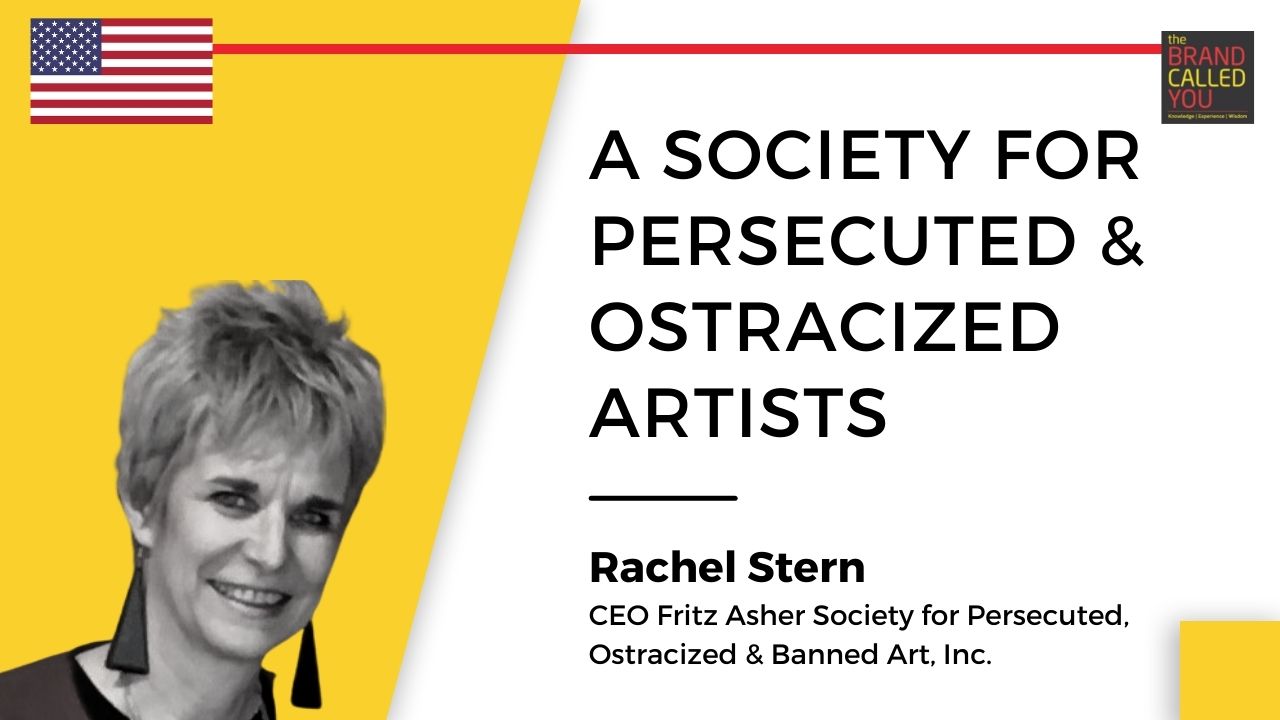Rachel Stern, CEO, Fritz Asher Society for Persecuted, Ostracized & Banned Art, Inc.
Rachel Stern is the Founding Director and CEO of Fritz Asher Society, an organization for persecuted, ostracized, and banned artists. She was born and educated in Germany. She worked in the Drawing and Prints department at The Metropolitan Museum of Art in New York for 10 years.
Podcast
Overview
The Holocaust was a time in history that forever changed the world. It changed the way that we look at the world and the way that we look at the future. The Holocaust was one of the worst times in history because of the physical and mental pain that the Nazis put the Jewish people through.
Today we have Rachel Stern, CEO Fritz Asher Society for Persecuted, Ostracized & Banned Art, Inc. She talks about the artists and Holocaust.
About Rachel Stern, CEO Fritz Asher Society for Persecuted, Ostracized & Banned Art, Inc.
Rachel Stern is the Founding Director and CEO of Fritz Asher Society, an organization for persecuted, ostracized, and banned artists. She was born and educated in Germany.
She worked in the Drawing and Prints department at The Metropolitan Museum of Art in New York for 10 years. In 2017, she was the recipient of the Hans-and-Lea Grundig Prize in recognition of her research about one of the artists named Fritz Asher.
Fritz Asher, Society for Persecuted, Ostracized & Banned Art, Inc.
The Fritz Ascher Society researches, publish, and exhibits artists whose lives and careers were stymied by oppression or persecution. We introduce their unique artistic voices to a larger public by organizing international research initiatives and exhibitions, as well as print publications and digital initiatives.
Fritz Ascher (Berlin, 1893-1970) was a German Expressionist artist of Jewish birth who survived National Socialist persecution between 1933 and 1945 without ceding to create.
Discovery of Fritz Asher
I was born and educated in Germany. I finished Studies in Art History and came upon Fritz Asher’s work. Fritz Asher was born in 1893 and died in 1970. He had survived the Holocaust in the hiding. I saw the landscapes that he created after he came out of hiding after 1945.
I was amazed by the beauty and the intensity of the landscapes. The collector who I met was very interested to put an exhibition about the artist. I reached out to a lot of museums only to find out that in the 80s no one was interested to show an artist who was persecuted by the Nazis.
Then I moved to U.s. In 2010, I thought there should be more interest and I organized an exhibition in the U.S. In 2014, I went to Germany and found people were much more interested in the topic. And that’s how Fritz Asher Society came into existence.
Identity Art and Migration
We have a higher sensitivity to migration because there are so many people migrating. But the first half of the 20th century is the time when the second-largest number of people were migrating. In our most recent project, Identity Art and Migration, we look at seven artists and their migration experiences.
They were all persecuted by the Nazis and came to the U.S.in different ways and created very different art.
America, its culture and these Artists
Americans were familiar with the European Culture and this has made it easy for the artists. By looking at the artwork of these artists, we can see changes and adjustments that you can not put into words.
COVID-19 and Artists
We were all safe at home and this really made me think about Fritz Asher who was into hiding for years. You do not understand what that means until you are stuck in a much less threatening situation.
He has a family friend who hid him in the basement of her building for three years. In a very little way, I was able to understand a little better what it means to be locked up and find something meaningful to do. I am amazed he did not go crazy during this time.
Importance of working with these artists
It is deeply meaningful for two reasons. First, I want to tell their stories and I think by telling their stories, we can teach about Holocaust. We can look at personal decisions that you are confronted with. I want to do anything I can do to integrate these artists into art history and help them get recognition.
Profile
Rachel E. Stern is a Professor of Law and Political Science and currently holds the Pamela P. Fong and Family Distinguished Chair in China Studies. Her research looks at law in Mainland China and Hong Kong, especially the relationship between legal institution building, political space, and professionalization.
Stern is the author of Environmental Litigation in China: A Study in Political Ambivalence (Cambridge University Press 2013), as well as numerous articles on legal mobilization and lawyers in contemporary China.
Stern is currently part of a collaborative effort to analyze the 60+ million Chinese judicial decisions placed online following a 2014 policy change. This massive expansion in the public record of court activity promises to re-shape our understanding of Chinese law and, beyond China, of authoritarian legality.


